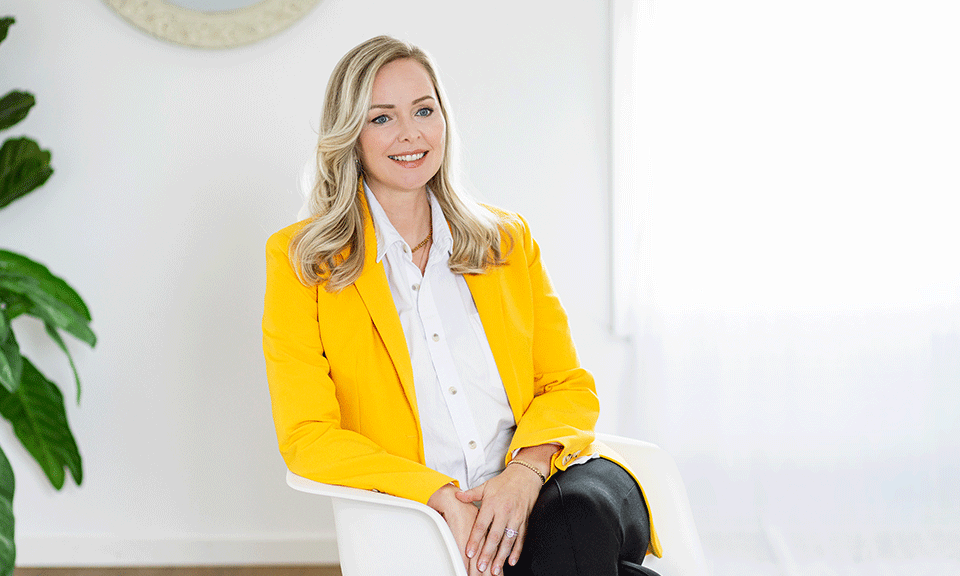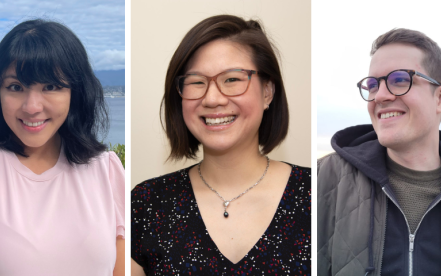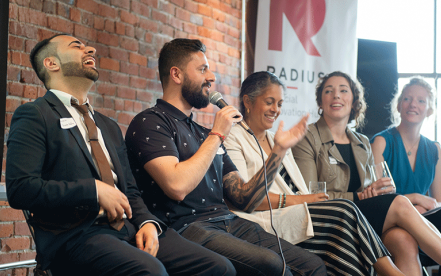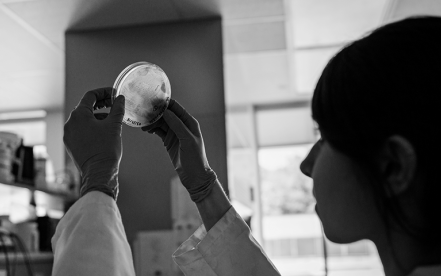People of SFU: Meet Erin Biddlecombe, Senior Director, Student Affairs

Erin Biddlecombe leads a dynamic team supporting SFU students and their success with services and programs that go beyond academics. Through the three units she oversees—Health and Counselling Services, Multifaith Centre and Office of Student Support, Rights and Responsibilities—more than 65 doctors, clinical and non-clinical staff and dozens of student volunteers aim to support students’ wholistic well-being, including their physical, emotional, social spiritual, and mental health, which in turn, supports SFU students’ academic goals.
Erin is also a PhD candidate at SFU, connecting her commitment and advocacy for social justice with her research on equity matters in higher education.
Learn more about Erin, her leadership approach, and her team’s commitment to help students flourish.
What do you enjoy most about being a part of the SFU community?
SFU students are hardworking and talented—a lot of them juggle multiple jobs and home responsibilities, many while commuting at least an hour each way to campus. They are some of the most resilient students I’ve had the chance to work with in my career at various institutions. Students can also be our best teachers, if we give them the space to tell us about their experiences and what matters most to them. As alumni, they are doing important work in support of their communities; it’s inspiring to watch them.
In addition to being a staff member and PhD student, you are also a donor to SFU—why do you think it is important to give back to your place of work and future alma mater?
I was the first person in my family to go to university, and financially my parents worked hard to save enough money to send me. I’m incredibly grateful for their support. As an undergrad and master’s student at other institutions, I received scholarships from donors there, which really helped me have the time to focus on my learning. A lot of SFU students need the same kind of financial support so they, too, can prioritize their academic success. Providing bursaries and scholarships to support this generation of students at SFU really matters to me and makes me feel like my donations are meaningful.
Who would you say inspires you the most, and why?
When I think of the types of people that inspire me the most, they are people leaders who are empathetic, who know and trust their staff, who deliberately engage a wide range of staff from various lived and work experiences in decision making, who listen more than they speak, and who leverage these strengths into getting work done in an ethical, inclusive, and collaborative way. I’ve noticed that these are the leaders who end up getting the results needed by the organization. They may not hold the title of ‘leader’ but they are seen as a leader by their peers and colleagues.
What is the most important lesson you have learned that informs your leadership approach?
One of the greatest lessons I have learned is the necessity to understand my positionality—I hold a lot of social capital and power as a white, cisgender, heterosexual, settler woman with a senior director title and advanced educational degrees.
When I’m making decisions, especially when it’s on behalf of groups or communities of folks that I don’t belong to, it’s important to bring people from those groups into the tent with me as soon as possible to work together. Leaders have a role to play in making all staff feel like “this is the place for me, this is where I want to work, I’m being listened to, I’m being heard, I’m involved in decision making and I’m excited about the future.”
Student health and well-being is foundational to student academic success and to students being able to graduate and move on to whatever is next in their lives. Can you tell us more about how your team is supporting the success of SFU students and helping to transform their experience?
My team is looking at “upstream strategies” to serve students sooner. Hiring more counsellors is not actually the silver bullet solution. In addition to having appropriate numbers of clinicians (who represent a diversity of students’ lived experiences) ready to support students, we also need to look at university policies and procedures and the way the university is designed—and do so through the lenses of student well-being and health equity. Are we creating welcoming spaces where all students feel like they belong? How might we be designed to create barriers to access? How are we exclusionary to some equity-deserving students? Which students? How do we evolve SFU so we can help students build skills, build community, be well to learn well, and thrive here?
What do you consider to be your greatest achievement?
SFU is a small town, and crisis happens here just as it would anywhere else. So, when the phone rings or an email comes into the office to alert us that a student or a group of students is experiencing a crisis, the team I work alongside quietly responds to these students’ needs. By design it is not publicly known because we want to protect the dignity and confidentiality of the students that are involved. There are lots of evenings and weekends where the team is visiting family, visiting people in hospital, supporting faculty members, at times going to funerals. It is the most humbling and heart-heavy work I have ever done, and I am so in awe of my colleagues who do this work together so well.
This story is part of our winter 2023 edition of Engage, our magazine celebrating the impact of SFU’s donor community.
To read more stories, please visit the Engage landing page.


